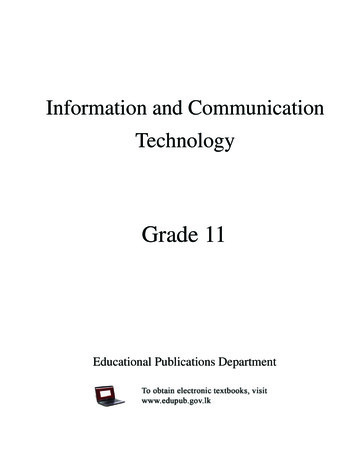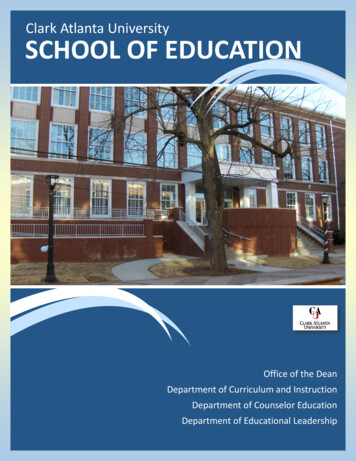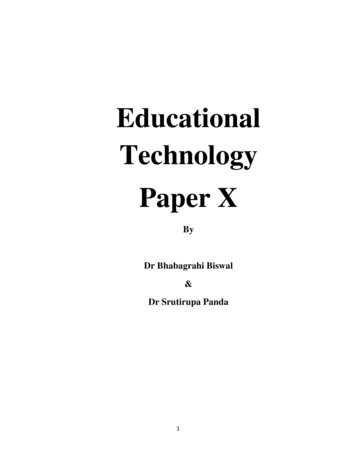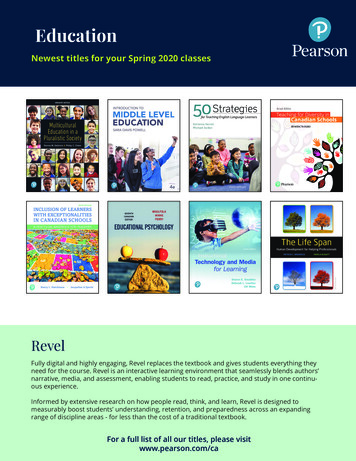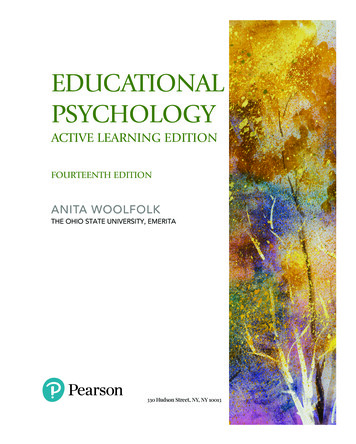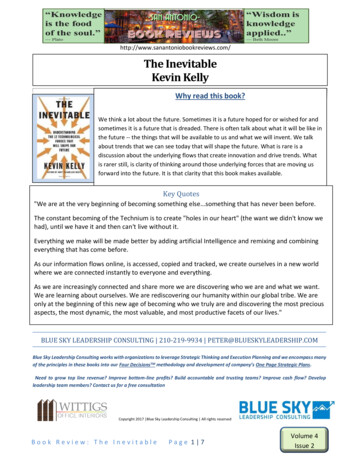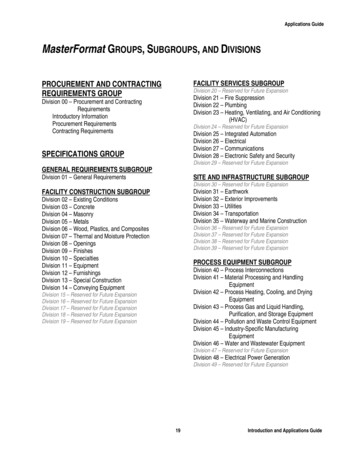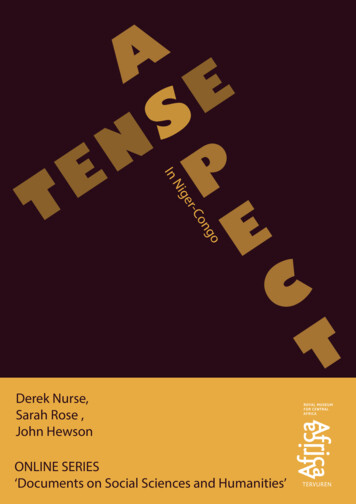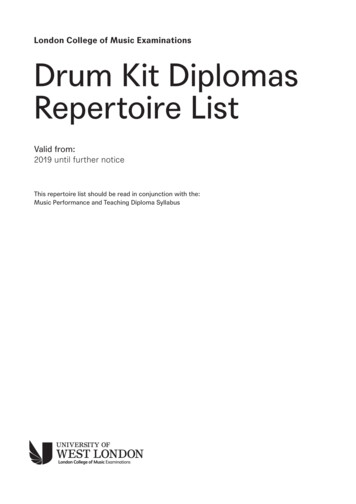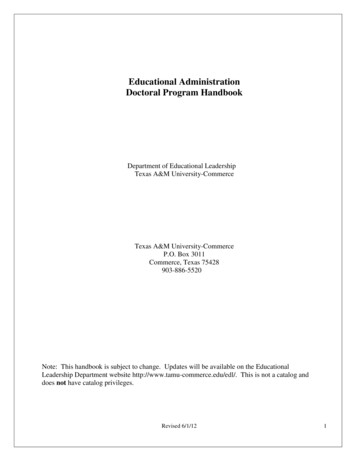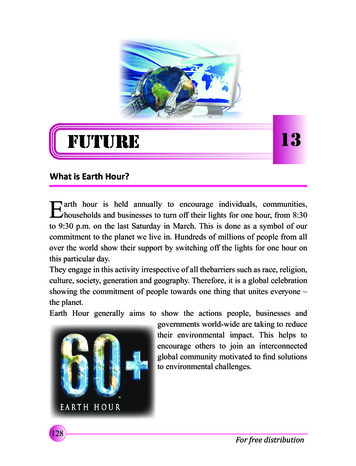
Transcription
FUTURE13What is Earth Hour?Earth hour is held annually to encourage individuals, communities,households and businesses to turn off their lights for one hour, from 8:30to 9:30 p.m. on the last Saturday in March. This is done as a symbol of ourcommitment to the planet we live in. Hundreds of millions of people from allover the world show their support by switching off the lights for one hour onthis particular day.They engage in this activity irrespective of all thebarriers such as race, religion,culture, society, generation and geography. Therefore, it is a global celebrationshowing the commitment of people towards one thing that unites everyone –the planet.Earth Hour generally aims to show the actions people, businesses andgovernments world-wide are taking to reducetheir environmental impact. This helps toencourage others to join an interconnectedglobal community motivated to find solutionsto environmental challenges.128For free distribution
One Hour or More?However Earth Hour is not merely for savingan hour’s electricity; it is a broader concept thathelps us to understand that most of our actionshave an effect on the world. For example, theenergy we use, the food we buy and the waterwe drink have an impact on our planet. We alldepend on our planet and need to look after it –not just for an hour a year, but every day.So, when we switch on the lights again, if we stop to think about the things wecan change in our daily life, it will benefit the planet in many ways. Across theworld, biodiversity and natural habitats are disappearing at a greater rate thanever before. If we are not careful, we will be depleting the earth of wild animals,water, wood and other natural resources faster than they can be replenished.Things will only worsen if we continue in the same direction.Activity 01ReadingRead the article and fill in the grid.Earth HourWhen?Where?By whom?For what?For free distribution129
Activity 02ReadingAnswer the following questions.1. How do people celebrate Earth Hour?2. Why is Earth Hour introduced as a global celebration?3. Select the sentence which says that Earth Hour cannot be limited to just onehour.4. According to the article, what will happen if we are not careful?5. Find out when Earth Hour will be celebrated this year and write down a listof things you hope to do on that day.Activity 03WritingRead the following sentences taken from the above article.1.If we stop to think about the things we can change in our daily life, it willbenefit the planet in many ways.2.If we are not careful, we will be depleting the earth of wild animals, water,wood and other natural resources faster than they can be replenished.3.Things will only worsen if we continue in the same direction.Construct sentences using the sentence pattern given below.1.2.3.4.If we waste water .If we cut down trees unnecessarily.If we pollute the environment.If we do not pay attention to disaster management.Think of the effects that could be caused under the above conditions and writethem in your notebook. Follow the example given.Eg- If we waste water, we will not have enough water to drink in fifty years’time.130For free distribution
Learning PointConditional SentencesA conditional sentence is a sentence structure used to talk about something(a result) that may happen ONLY IF something else happens first (a condition).“IF” type one (Possible situations)This is a picture of a market in an imaginaryisland. In this island people do not use amonetary system. Instead they still use thebarter system which is an old method ofexchanging services and goods for otherservices and goods in return.This is how they exchange their goods.John - If I give you some grains, will yougive me some apples?Tom - Sure! If you give me a handful ofgrains, I will give you four applesin return.Grace - Hey, if I give you some flour, willyou give me that bag of rice inexchange?Mary - Why not Grace? I need flour. If yougive it, I will exchange this bag ofrice for it.For free distribution131
Study the two exchanges. In each exchange, there is a possible condition.The result will occur only if this condition is fulfilled.In type one of the conditional sentences we talk about possible, real conditionsthat have possible results. The tense in the 'if' clause is in the simple present,and the tense in the main clause is in the simple future.Condition (IF Clause)Result (Main Clause)If you give me a handful of grainsI will give you four apples inreturn.If you give me some flourI will exchange this bag of rice forit.Activity 04Fill in each blank with the right form of the verbs in brackets.1.2.3.4.If they (invite) me to the party, I will attend it.If you apologize to the teacher, I am sure she (excuse) you.If there is a drought, many (suffer) without water.If you (be) kind to your fellowmen, that kindness will bereturned to you.5. If you win the first place in the contest, an air ticket (provide)by the organizers.132For free distribution
“IF” type two (Imaginerysituations)Let’s go back to the market.What will happen if you donot have something suitableto exchange to get what youwant?Read this dialogue.Luke -If I give you my cow, will you give me honey for the value? My cowwill give you a lot of milk.George - Oh sorry, Mr. Luke. I don’t have enough honey to match the value ofyour cow. How about something smaller? A chicken perhaps?Luke What can I do? This is all I have. If I had a chicken, I would give itto you.George - Then there’s no deal. If I were you, I would give this cow to farmerStephan. He would give you some bags of rice.Luke - If I needed rice, I would give it to him. I don’t need rice since I’vemore than enough in the cellar. See you then.In this dialogue, there are unlikely conditions. Fulfilling these conditions istheoretically possible but practically it is highly unlikely to fulfil them.In type two of the conditional sentences, we talk about unlikely conditionsthat are unlikely to be fulfilled. The tense in the 'if' clause is in the simplepast, and the tense in the main clause is ‘would infinitive’.Condition (IF Clause)Result (Main Clause)If I had a chickenI would give it to you.If I were youI would give this cow to farmerStephan.For free distribution133
Activity 05Fill in each blank with the right form of the verbs in brackets.a. If I had a million rupees, I (use) it to help poor people.b. If I (write) an interesting novel, I would become famousthroughout the world.c. If Savindu were the captain of the Sri Lankan cricket team, everyone(know) him.d. If he (be) the manager of our company, he could increaseour salaries.e. They (live) in the town, if they had money to buy a housethere.“IF” type three (Impossible situations)After returning from the market Mr. Luke felt sorry because he could notget what he wanted. This is how he told his experience to his wife.If I had got something smaller, I would have exchanged it for honey.In this situation, it is impossible that the condition will be fulfilled becauseit refers to the past. The tense in the 'if ' clause is in the past perfect, andthe tense in the main clause is 'would have past participle'Condition (IF Clause)If I had got something smaller134Result (Main Clause)I would have exchanged it forhoney.For free distribution
Activity 06ReadingRead this story about Mr. Mumble Jumble. Then decide the things thatcould have been different for him on this particular day. Write them in yournotebook. Follow the example given.Eg :- If he had checked the bag before leaving the counter, he would haveseen the saree.One day, Mr. Mumble Jumble had a series of misfortunes. He wasinvited to attend the wedding ceremony of one of his close friends. He decidedto go shopping to buy a new shirt to wear on that day. At the shop, the salesmanshowed him a number of shirts. Mr. Mumble Jumble selected a nice, blue shirt.It was just the colour he liked. He gave it to the salesman who volunteeredto take it to the cashier while Mr. Mumble Jumble looked for the credit cardin his pocket. When Mr. Mumble Jumble arrived at home, he unpacked hisshopping, and found that the cashier had given him a blue saree instead of theshirt! Unfortunately, he had not checked his bag before leaving the counter.“No problem,” Mr. Mumble Jumble thought. “I will take it back to the shoptomorrow and exchange it”However, when he went back to the shop, it was crowded and there wasa long queue at the cashier. Mr. Mumble Jumble decided to walk round the shopuntil he was able to speak to the cashier.It was then that the security officer became suspicious of him. He asked Mr.Mumble Jumble to show the contents of the bag. When he asked for the bill,he produced it but unfortunately, the contents of the bag did not match the bill.Poor Mr. Mumble Jumble was called as a shoplifter and taken to the ChiefSecurity Officer, becouse they thought that he had stolen a saree from the shop“You have stolen this expensive saree, haven’t you?” he asked.For free distribution135
“I don’t wear sarees. My friend is getting married next week. So I wanted to buya shirt” mumbled Mr. Mumble Jumble.The Chief Security officer was even more suspicious as it was not a clearanswer. He detained Mr. Mumble Jumble for two more hours until the managerof the shop arrived. After some more mumbling Mr. Mumble Jumble managedto explain what really happened to him.After two more hours, Mr. Mumble Jumble went home with his new, blue shirtsecurely tucked under his arm.Learning PointFuture Perfect TenseRead the following predictions made about future by NASA. Climatic conditions will have changed by the year 2099. The changing climate will have affected the Earth by 2099. An increase in temperature variability will have extendedthe extremes of temperature, both cold and hot. The high temperature will have changed the rainfall patterns. Melting glaciers and ice caps will have caused sea levels torise.We use the Future Perfect Tense to say that something will be finished by aparticular point of time in the future.136For free distribution
Here is how Future Perfect Tense is formed.subjectwill haveClimatic conditionsThe changing climateAn increase intemperature variabilitypast participleform of theverbchangedwill haveaffectedextendedThe high temperaturechangedMelting glaciers and icecapscausedActivity 07Use Future Perfect tense form of the verbs given in brackets to fill in theblanks.Chamith: What do you think (change) by the year 2030?Rahman: I think astronauts (land) on Mars by the year 2030.Chamith: Do you think scientists . (find) a cure for AIDSby then?Rahman: They . (not, do) that but I think they .(invent) multi-duty robots to do human work.Chamith: Wow! That’s great! Surely by that time we . (complete)our education.Rahman: Yes. We . (start) our careers by then and robots will bethere to do the work for us.For free distribution137
Activity 08Think of your life in the year 2030. What changes will have occurred in yourlife by then? Follow the example given and write as many sentences aspossible.Eg :1. I will have started doing a job by 2030.2. I will have built my own house by 2030.138For free distribution
Read this dialogue. Luke - If I give you my cow, will you give me honey for the value? My cow will give you a lot of milk. George - Oh sorry, Mr. Luke. I don't have enough honey to match the value of your cow. How about something smaller? A chicken perhaps? Luke - What can I do? This is all I have. If I had a chicken, I would give it to you.

